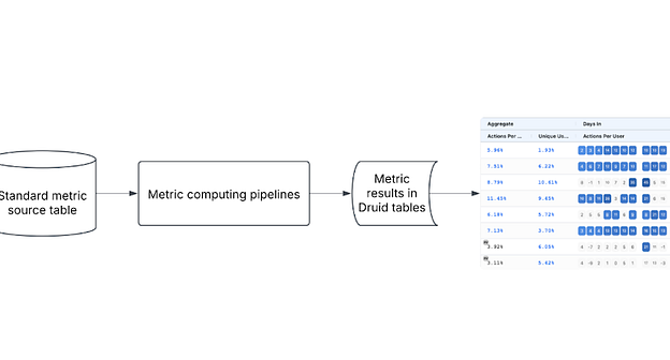Medium
1M
373

Image Credit: Medium
500X Scalability of Experiment Metric Computing with Unified Dynamic Framework
- Pinterest utilizes experimentation as a key driver of decision-making, computing over 1,500 metrics daily by the end of 2024.
- Challenges of delays in data ingestion, backfilling metrics, and scalability issues led to the development of the Unified Dynamic Framework (UDF).
- UDF has increased scalability by supporting up to 500X metrics, reduced engineering time, and standardized metric processing.
- The Helium platform at Pinterest supports end-to-end experiment analysis, allowing users to define custom action types and analyze aggregated metrics.
- The Metric Computing Workflow involves data ingestion into standard tables and computation into Druid tables for visualization on Helium dashboards.
- UDF addresses challenges by using Dynamic DAGs to manage upstream dependencies, prevent duplicate computations, and automatically backfill skipped metrics.
- The framework also includes features like notifications for delays, tracking of metric processing, and a unified tracking system for governance and automation.
- UDF simplifies pipeline creation, separates metric computation from pipeline creation, and leverages Experiment Metrics Metadata system for streamlined management.
- Pinterest saw significant improvements in developer velocity, flexibility, scalability, speed, and reliability after implementing UDF.
- UDF standardization across the platform led to faster metric delivery, improved innovation, and better business outcomes.
- The framework is designed to continue empowering experimentation and delivering value to Pinterest users.
Read Full Article
22 Likes
For uninterrupted reading, download the app